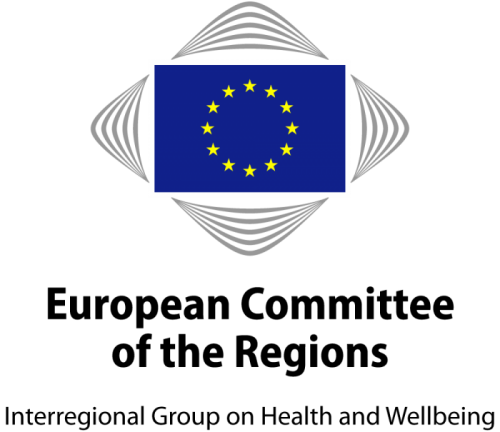
The CoR Interregional Group on Health and Well-being (IRGHW) held its last meeting of the year on 25 November. This session was dedicated to supporting mental health during and after the COVID-19 pandemic, with contributions by experts from various European regions and organisations. Mental health disorders already represented a significant health burden prior to the pandemic, with around 16% of the European population suffering from a mental disorder. The COVID-19 pandemic and the subsequent economic crisis has exacerbated this situation, especially amongst vulnerable groups.
Ms. Brigitta Sacrédeus, Chair of the Interregional Group, welcomed everyone and explained that the meeting was organized to discuss the topic of mental health in the European Union in pandemic and post-pandemic. The event was divided into two panels, each consisting of three speakers and followed by a Q&A session.
Prof. Pedro Pita Barros, Chair of the drafting group of the Opinion within the Expert Panel on effective ways of investing in health (EXPH), presented the Opinion on ‘Mental health of the health workforce and other essential workers’ by the EXPH. Prof. He emphasized that it is important to know the information at our disposal and change how we read pre-existing evidence. Prevention deserves great attention, but is not easy to pursue as it seems quite context-dependent and presents several problems, such as stigma and resources availability. He also underlined the importance of cost-effectiveness studies that can help design policies and interventions. The EU, national, regional and local levels need to cooperate, as well as relevant sectors such as health, employment, and social sectors.
Dr. Njördur Viborg, Psychologist and responsible for Psychotherapy in the management team of Psychiatry in Skåne County (SE), presented a digital self-help intervention in the form of an online cognitive-behavioral therapy (CBT) self-help programme with the aim of reducing the participants’ unhelpful worry about the pandemic. It is a very popular programme, and rightly so. Results showed a 30% decrease in perceived anxiety, and even 40% decrease in worrisome thoughts. Other positive outputs such as better sleep and the loss of depressive thoughts have also been reported.
Dr. Chris Wright, National Advisor for Digital Mental Health for the Scottish Government, shared that demand for psychological services in Scotland has doubled in the last ten years. During 2020, COVID-19 massively intensified the digital offer in terms of mental health self-managed treatments, growing from 1 to 2. Available treatments now include treatments for depression, social anxiety, health anxiety, insomnia and many others. This has been possible thanks to the Service Platforms of Delivery, established over the whole of Scotland with fourteen installations with the same organizational structure for the support of multiple technologies and digital services. All the technologies used are evidence-based.
At the end of the first session there was room for open debate and an exchange of opinions on what was discussed.
Prof. Walter Osika, Associate Professor at Karolinska Institutet and partner of PERISCOPE Project, started off the second session by presenting the PERISCOPE project and its results achieved so far. They found the pandemic caused an increase in distance work: the number of people working from home at least one day a week increased from 5-7% (in the pre-pandemic period) to approximately 40%. In the same period, job insecurity and depressive symptoms increased as well. However, there were also positive changes in those occupational groups able to work from distance, such as increased work-family balance and a decrease in cognitive problems and stress. Prof. Osika also drew attention to the concept of “One Health”, which acknowledges the interconnection between human-animal-environmental health and represents a collaborative, multisectoral, and transdisciplinary approach.
Ms. Åse Marit Hovden, Senior Adviser Public Health at Viken County (NO) and partner of the BOOST project, presented the BOOST project. BOOST aims to develop, implement and test a new school-based population approach for social and emotional learning (SEL). This approach involves school staff skill development, organisational development, and school implementation. By developing teachers’ SEL competence, the project will strengthen the children’s SEL competence and thus will promote mental health and well-being. The project has published a policy brief describing a lack of consistency in policy formulation and implementation across policy levels, which leads to insufficient resources and capacities to deliver high quality social and emotional learning programs in schools. Thirteen recommendations have been formulated to achieve more systematic work across all policy levels.
Dr. Claudia Marinetti, Director at Mental Health Europe, introduced her organization as the largest independent European network organization working to promote positive mental health and mental well-being, prevent mental health problems, support the rights of (ex)users of mental health services, persons with psychosocial disabilities, their families, and carers. She pointed out that the EU has a responsibility regarding the mental health of its citizens, which has become more urgent now because the pandemic led to higher mental distress and disruption of services. Despite this increasing relevance of mental health, the EU still does not have a plan for an integrated approach to address the mental health of its citizens.
At the end of the second session, there was again time for an open exchange of opinions during which participants highlighted several topics, such as the need to remove stigma around mental health, the need for prevention, and the importance of attention to mental wellbeing in schools.
Ms. Brigitta Sacrédeus, Chair of the Interregional Group, thanked everyone for their contributions and closed the meeting.


